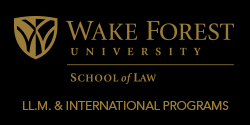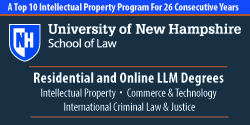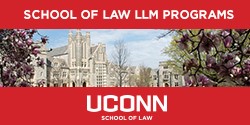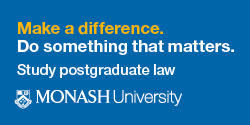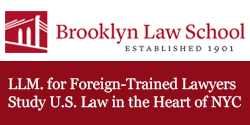
INTERVIEW: Explore Legal Studies in China with Lori Reynolds
- Can you give a brief introduction to the various law programs that is offered by Peking University, School of Transnational Law?
We offer an LL.M. degree as well as an American-style J.D. degree that is taught entirely in English alongside a Chinese J.M. International students can enroll as exchange students while completing degrees at other law schools or as students in our J.D. or LL.M. programs.
- What is the acceptable level of IELTS or TOEFL score for the LLM program? What happens if the student who is a good candidate, but does not meet the IELTS/TOEFL score requirement? Is there a language school or a pre initiation program for such students?
We encourage all qualified candidates to apply. We ask that applicants have a minimum score of 92 on the TOEFL IBT or 6.5 on IELTS with a 7.0 in writing but we are happy to talk with applicants if their scores are somewhat under these scores.
- How many intakes are there for the master’s in Law program in a year? And when is the right time to apply for an LLM program at Peking University?
Applicants can begin our LL.M. program in August of each year and our application period is from November to April. We have rolling admissions and encourage applicants to apply early in the application period.
- What is the typical class strength for an LLM program?

Lori Reynolds, Director of Graduate and International Programmes.
Our classes are engaging and interactive. They cover a rich variety of Western and Chinese law and are taught by expert faculty and practitioners who have diverse experience in law firms, corporations, and governments.
- How many hours of lectures in a week are there for a typical LLM program?
Most LL.M. students will take about 12 credits per academic quarter. The 12 hours a week a student may spend in class not only include lectures but also engaging discussions, negotiations, debates, and sessions drafting complex documents, debates.
- The traditional choice for an LLM is either US, UK, Australia or Europe, In your opinion, how can a student leverage an LLM from China and specifically from School of Transnational Law?
An LL.M. from STL sets students apart. They learn Western and Chinese law from the top university in China and get to do so in the one of the most dynamic regions of the world. The experience is unparalleled.
- One of the main question that our readers normally have is regarding scholarships. Are there any scholarships that are offered by Peking University for qualified students?
Yes, we provide a limited number of scholarships for highly qualified students and all applicants are considered for these scholarships. We also encourage applicants to apply for the Chinese Government scholarship listed on our website as well as other scholarships for when they may be eligible.
- How diverse is the LLM program at Peking University? Does a typical LLM class represent a lot of nationalities?
Faculty and students present a variety of perspectives and nationalities. In the first year that the program started, we have had applicants from more than 10 different countries.
- How old is the LLM program at Peking University, when was it started?
2015 is the first year of our LLM program. Our JD/JM program started in 2008 and Peking University was begin in 1898. We have a rich history that is described on our website here: http://stl.pku.edu.cn/about-stl/history-of-stl/
- Does STL have a career office? Do they guide the LLM students on career options available to them?
Yes, we have a Career Development Office with dedicated staff members who also have law degrees. The career services we provide as well as the employment placement of our graduates is provided on our website here: http://stl.pku.edu.cn/careers/careers/
- What is the minimum acceptable grade for applying to the Peking University program? In case a student fall short of the required grade, does work experience or extracurricular activity give them an advantage?
We admit excellent students and look at the full application when considering a candidate for admission.
- Does School of Transnational Law have a strong network of Alumni?
Yes, we have a strong and growing network of alumni as well as regular networking events for alumni. A list of where our graduates have been placed is on our website here: http://stl.pku.edu.cn/careers/careers/
- Is there a place or site where we can read more about student experience of Graduates of STL?
Yes, you can learn about the student experience on several pages of our website. Our pages on news and events, international opportunities, moot court, clinical programs, student organizations, and the student union are just a few places that describe the student experience. I can also connect interested applicants with current students so that they can ask questions about what it’s like to be part of the STL community.
- Apart from the academics, does the University offer any law firm visits or company visits?
Yes, students have opportunities to visit firms, companies, and courts. Additionally, we have a wide variety of speakers come to campus and interested applicants can see a select list of recent speakers on our website here: http://stl.pku.edu.cn/category/news-and-events/
- Does the Law School have a summer program that students can attend to get a feel of learning in Peking?
We have a summer program for J.D./LL.M. students and understand how important and helpful it is to experience the campus, faculty, and students of a program before deciding to enroll. We arrange for interested LL.M. applicants to visit our campus to sit in on classes and meet with faculty and students, and applicants are welcome to contact me about visiting our school.
- Given the significance of China in the world and given that a lot international trade happens between China and rest of the world, knowledge of Chinese legal system could perhaps be quite useful, to what extent does Peking University cover Chinese legal system in the LLM program?
You’re absolutely right and students at STL benefit from learning multiple legal systems in one of the world’s most dynamic areas of business and trade. Our courses include Chinese law and legal traditions taught by expert scholars and practitioners.
- What is the method of assessment? Are there exams or only course work or is it a combination of two? Are students expected to submit a dissertation at the end of the course?
As with our teaching methods, our methods of assessment vary to help students best learn the material they are studying. Ways that students demonstrate their knowledge and understanding may include exams, papers, problem sets, quizzes, group projects, and presentations. The J.M. and LL.M. degrees include a thesis.
- If the readers have any further queries regarding applying for the Law Program who should they contact?
I look forward to hearing from interested applicants and they can contact me, Lori Reynolds, at the following email address: [email protected]
Make An Enquiry
To know more about this institution and various course programmes, you can make an enquiry and someone will get in touch with your shortly.



